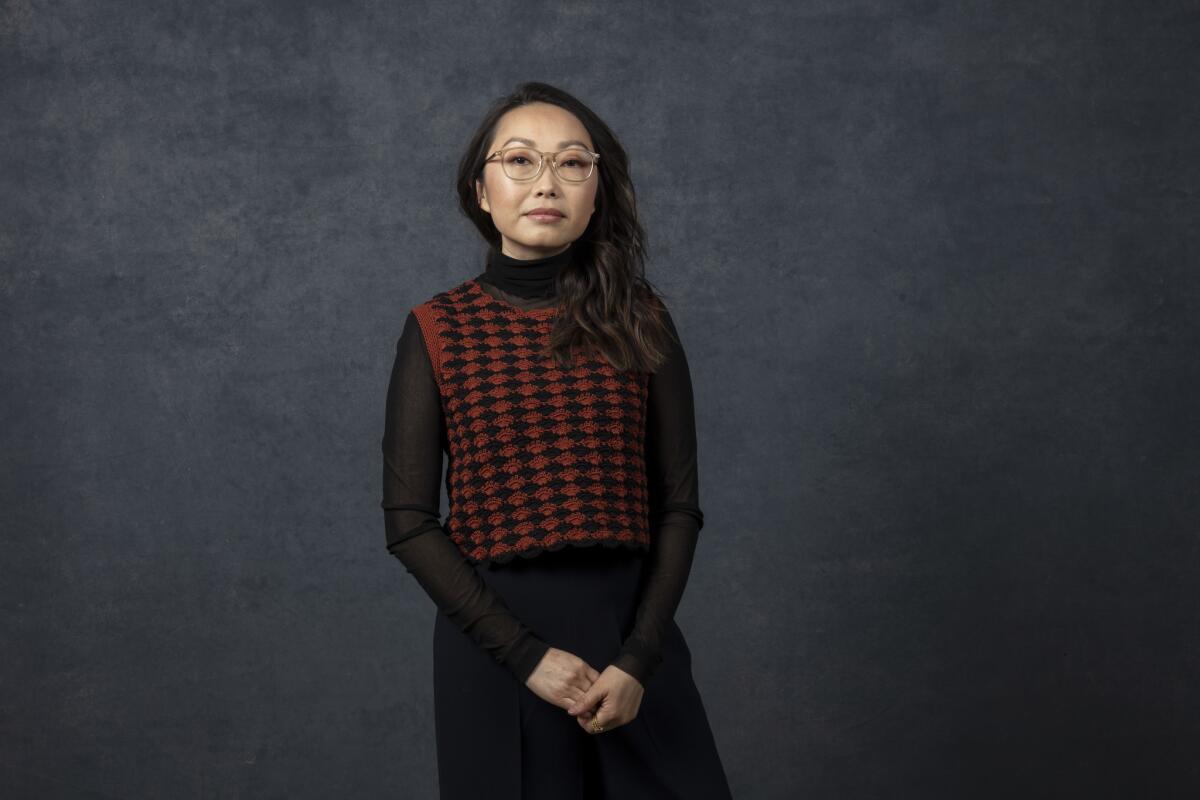Women directed so many of this year’s best movies. Will Oscar voters pay attention?

- Share via
You may know that in the 91-year history of the Academy Awards, only five women — Lina Wertmüller, Jane Campion, Sofia Coppola, Kathryn Bigelow and Greta Gerwig — have been nominated for the director honor.
I was certainly aware of that imbalance, but the sheer absurdity of that inequality really hit me the night of this year’s Governors Awards, the event in which the film academy hands out its honorary Oscars.
Gerwig and Campion took the stage to honor Wertmüller — who in 1977 became the first woman to earn an Oscar nomination as a director, for “Seven Beauties.”
Campion offered a brief history of female directors and the Oscars (“more of a haiku, really,” she said), and then slowly counted by tens the number of men who had earned nominations for direction over the years, starting at 10 and ending at 350.
Just to reiterate, for those scoring at home: That’s 350 directing nominations for men and five for women.
“How do you correct centuries of patriarchal domination?” asked Campion to a room full of film industry professionals who could, in fact, begin making such a correction by hiring more women.
It’s also a question that could be asked of Oscar voters in a year in which women have directed many movies worthy of strong consideration. Out this week is Marielle Heller’s “A Beautiful Day in the Neighborhood,” a lovely and persuasive testament to the power of kindness that stars Tom Hanks as Mister Fred Rogers.
Gerwig’s adaptation of “Little Women” arrives on Christmas, and it is a stirring, personal take on Louisa May Alcott’s 1868 novel that works as a loving tribute to both its source material and its author. Judging from the frenzy surrounding its first overbooked screening last month at the Directors Guild theater, it has the makings of a huge holiday hit.
Lorene Scafaria’s “Hustlers” is already a hit, having crossed $100 million in domestic box office. The perceptive, kinetic visual style Scafaria brought to this compassionate caper drama is crucial to its success.
But academy members shouldn’t limit themselves to the movies that have marketing behind them. Globally, it’s been an excellent year for women behind the camera. French Senegalese filmmaker Mati Diop’s “Atlantics,” a haunting, boundary-defying story of loss and reclamation, won the Grand Prix award at Cannes. Claire Denis made her English-language debut with “High Life,” a story of sex, space and death that was tender and brutal and further confirmation that she’s one of the finest directors working today.
You could make a persuasive argument for another Cannes sensation, Céline Sciamma’s glorious love story “Portrait of a Lady on Fire,” winner of the festival’s Queer Palm prize, the first film from a woman to take that award. Then there’s Joanna Hogg’s extraordinarily intimate “The Souvenir,” Jennifer Kent’s visceral revenge tale “The Nightingale,” Alma Har’el’s heartbreaking “Honey Boy” and, of course, Lulu Wang’s “The Farewell,” a funny and poignant meditation on family that became one of the year’s biggest indie hits.
So that’s where we’re at. It would not be difficult to find the sixth or (let’s get crazy) the sixth and seventh women to earn the distinction of “Oscar-nominated director.” I haven’t included all the women I mentioned in the list below, but voters should make a point of finding their movies.
Here’s an early look at the races for director and cinematography, two categories won by the same individual — Alfonso Cuarón for “Roma” — last year.
DIRECTOR
Bong Joon Ho, “Parasite”
Martin Scorsese, “The Irishman”
Quentin Tarantino, “Once Upon a Time ... in Hollywood”
Greta Gerwig, “Little Women”
Noah Baumbach, “Marriage Story”
Next up: Pedro Almodóvar, “Pain and Glory”; Sam Mendes, “1917”; Lulu Wang, “The Farewell”; Taika Waititi, “Jojo Rabbit”; Todd Phillips, “Joker”; Marielle Heller, “A Beautiful Day in the Neighborhood”; James Mangold, “Ford v. Ferrari”
Tarantino has never won this Oscar. Neither has Almodóvar, one of cinema’s greatest artists. The academy could rectify one of those omissions this season.
Scorsese, Tarantino and Bong stand as the early favorites for nominations, and the remaining two spots could go in a number of directions. Mendes’ ambitious war film, “1917,” has its first screenings this weekend. He won 20 years ago for his only nomination, “American Beauty.” Wang will likely earn a nomination for her original screenplay, but she’s a contender here too for a movie that many academy members hold dear to their hearts.
CINEMATOGRAPHY
Rodrigo Prieto, “The Irishman”
Robert Richardson, “Once Upon a Time ... in Hollywood”
Roger Deakins, “1917”
Lawrence Sher, “Joker”
Jarin Blaschke, “The Lighthouse”
Next up: Hoyte van Hoytema, “Ad Astra”; Phedon Papamichael, “Ford v. Ferrari”; Hong Kyung Pyo, “Parasite”; Robbie Ryan, “Marriage Story”; Jörg Widmer, “A Hidden Life”; Yorick Le Saux, “Little Women”
Even if you think (as I do) that “Joker” fails in its attempt to transcend the comic book movie genre, you have to admit that it’s an impeccably crafted comic book movie. I could see it being nominated here and for its production design and film editing.
Richardson has three wins and nine nominations, three of the latter coming from recent collaborations with Tarantino. Deakins finally won two years ago on his 14th try, for “Blade Runner 2049.” Maybe it’ll be Prieto’s turn this year for his work on Scorsese’s 3½-hour epic, a movie that skips through decades, incorporates de-aging visual effects and delivers a master class in visual storytelling.
More to Read
Only good movies
Get the Indie Focus newsletter, Mark Olsen's weekly guide to the world of cinema.
You may occasionally receive promotional content from the Los Angeles Times.











